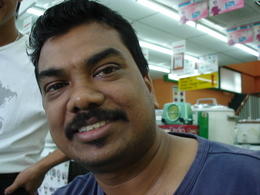Is there an anti-corruption drive?
Now that Eric Chia has been acquitted - largely due to the prosecution’s failure to produce material witnesses, the prime minister’s much touted anti-corruption drive once again comes to question.
This Perwaja Steel case was the first high-profile case initiated immediately Abdullah Ahmad Badawi assumed office in October 2003.
He, then, said that he would not compromise on corruption and vowed to clean up the menace.
After Eric Chia, former cabinet member Kasitah Gaddam was also charged in courts amid a massive media blow-up that Abdullah was keeping his promise of a clean government and governance.
Three years on, the wheels on the premier’s clarion call have slowly fallen off. No other high-profile cases were filed. No credible-tainted ministers were removed. Our world ranking in corruption continued to slide down. And now this smack in the face with the acquittal of Eric Chia.
No doubt the prosecution will appeal - which they rightly so did yesterday. But we must remember the words of the judge who said that: "The prosecution's case has been negated by their own evidence and crippled by the non-calling of essential witnesses".
Today, the prosecution said it was appealing because: "The decision to appeal was made because we are dissatisfied with the (acquittal) decision which, in our view, was against the weight of evidence."
What evidence? Apparently not much, according to the judge. Remember, the prosecution made expensive trips to Japan and Switzerland to gather evidence, which was not accepted in courts here. Five of their credible Japanese witnesses also refused to testify here.
All these makes me ponder:
1. Was the prosecution really keen to prosecute Chia? Or was the AG forced to act upon a political decision despite (perhaps) advising the government that it had insufficient evidence to charge Chia?
2. Or was it a government decision to charge Chia to ride on a popular wave, knowing that in any event there isn’t enough evidence to have a successful conviction?
I think I will get a better idea with the outcome of the Kasitah case.
Labels: abdullah ahmad badawi, malaysia, politics








